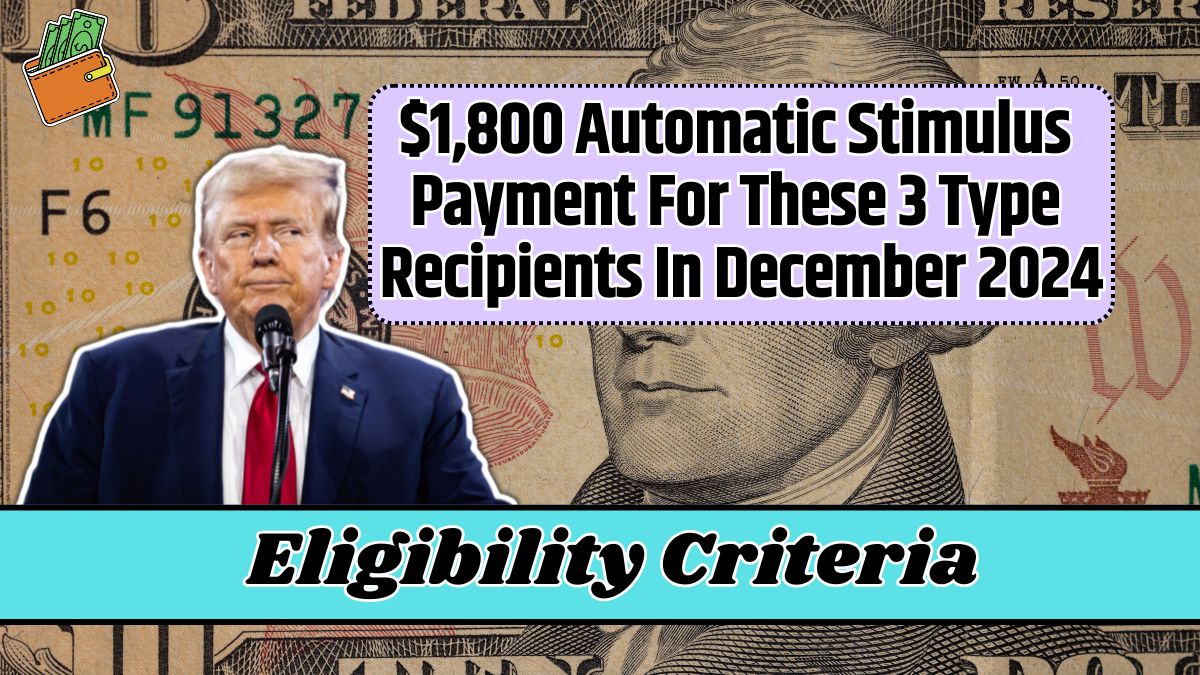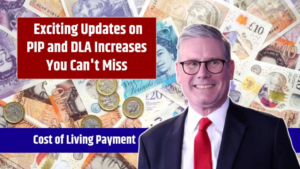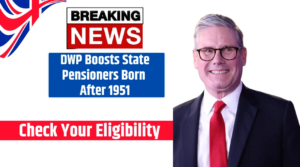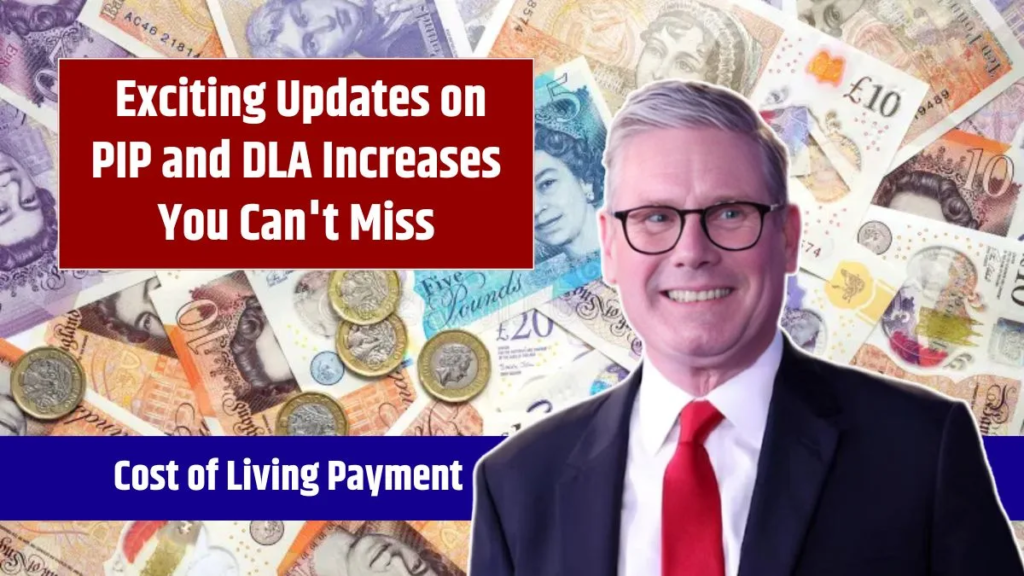Rumors of a $1,800 automatic stimulus payment targeting SSI, SSDI, and VA beneficiaries have been spreading.
While the news sparks hope, it’s crucial to separate speculation from reality. As of November 2024, no official confirmation has been made.
Here’s a breakdown of the situation, including potential eligibility, past trends, and steps you can take to stay informed.
$1,800 Automatic Stimulus Payment
Stimulus payments have been used as economic relief tools, especially during times of financial hardship.
The rumored $1,800 payment suggests automatic assistance for Supplemental Security Income (SSI), Social Security Disability Insurance (SSDI), and Veterans Affairs (VA) beneficiaries.
However, it’s essential to rely on verified information to avoid confusion.
Key Details at a Glance
| Topic | Details |
|---|---|
| What’s Rumored | $1,800 payment for SSI, SSDI, and VA beneficiaries |
| Who Might Get It? | SSI, SSDI, and VA recipients under specific criteria |
| What’s Confirmed? | No official confirmation as of November 2024 |
| Previous Stimulus Payments | CARES Act, American Rescue Plan, EIPs |
| Official Information Sources | IRS, Social Security Administration (SSA) |
The Truth Behind the $1,800 Stimulus Payment
As of now, there is no confirmed plan from the U.S. government or agencies like the IRS or SSA for a $1,800 payment in December 2024.
The rumors likely stem from social media speculation rather than actual legislation.
What We Know About Past Stimulus Payments
Stimulus checks have historically targeted vulnerable populations, such as seniors, people with disabilities, and veterans. Here’s a look at previous payments:
- 2020 (CARES Act): $1,200 for eligible individuals.
- 2021 (Consolidated Appropriations Act): $600 payment.
- 2021 (American Rescue Plan): $1,400 per eligible individual.
These payments were designed to provide relief during the economic downturn caused by COVID-19. Recipients of SSI, SSDI, and VA benefits were typically included in these efforts.
Why SSI, SSDI, and VA Beneficiaries Are Often Prioritized
1. SSI Recipients
- SSI provides financial assistance to low-income individuals who are elderly, blind, or disabled.
- These individuals often live on fixed incomes, making them particularly vulnerable to economic shocks.
2. SSDI Beneficiaries
- SSDI supports workers who are unable to work due to a disability.
- Many SSDI recipients rely solely on these benefits to cover their living expenses.
3. VA Beneficiaries
- Veterans with service-related disabilities or limited income often qualify for VA benefits.
- These payments recognize their service and address the unique challenges veterans face.
Given their financial vulnerabilities, these groups are often included in government relief efforts.
Legislative Process: How a Stimulus Payment Could Be Approved
For the rumored $1,800 payment to become a reality, Congress would need to propose and pass a new relief package. Here’s how the process typically works:
- Proposal: A stimulus plan is introduced in Congress.
- Debate and Revision: Lawmakers negotiate the terms of the bill.
- Approval: Both the House and Senate must approve the bill.
- Presidential Signature: The President signs the bill into law.
- Implementation: Agencies like the IRS and SSA begin distributing payments.
Until such a proposal is made, the $1,800 payment remains speculative.
How Payments Would Be Processed
If a new stimulus payment were approved, beneficiaries would likely receive their payments via the following methods:
- Direct Deposit: The fastest and most efficient option, using account details already on file with the IRS or SSA.
- Paper Checks: Mailed to individuals without direct deposit information.
- Prepaid Debit Cards: Issued to those without bank accounts.
It’s essential to ensure your contact and banking information is up-to-date to avoid delays.
Other Resources for Fixed-Income Individuals
Even without a stimulus check, several programs can help SSI, SSDI, and VA beneficiaries:
- SNAP: Provides food assistance to eligible households.
- LIHEAP: Helps cover heating and energy costs.
- Medicaid and Medicare: Offer healthcare support for low-income and disabled individuals.
- Section 8 Housing: Provides rent assistance to eligible families.
By exploring these options, you can access additional financial support.
Stay Informed and Proactive
To avoid misinformation, rely on official sources for updates about stimulus payments. Trusted platforms include:
- IRS Website: Provides accurate information about tax-related payments.
- SSA Website: Updates on benefits for SSI and SSDI recipients.
- VA Website: Resources for veterans and their families.
The rumored $1,800 stimulus payment in December 2024 is not confirmed, but by staying informed and exploring other assistance programs, you can secure the support you need.
















